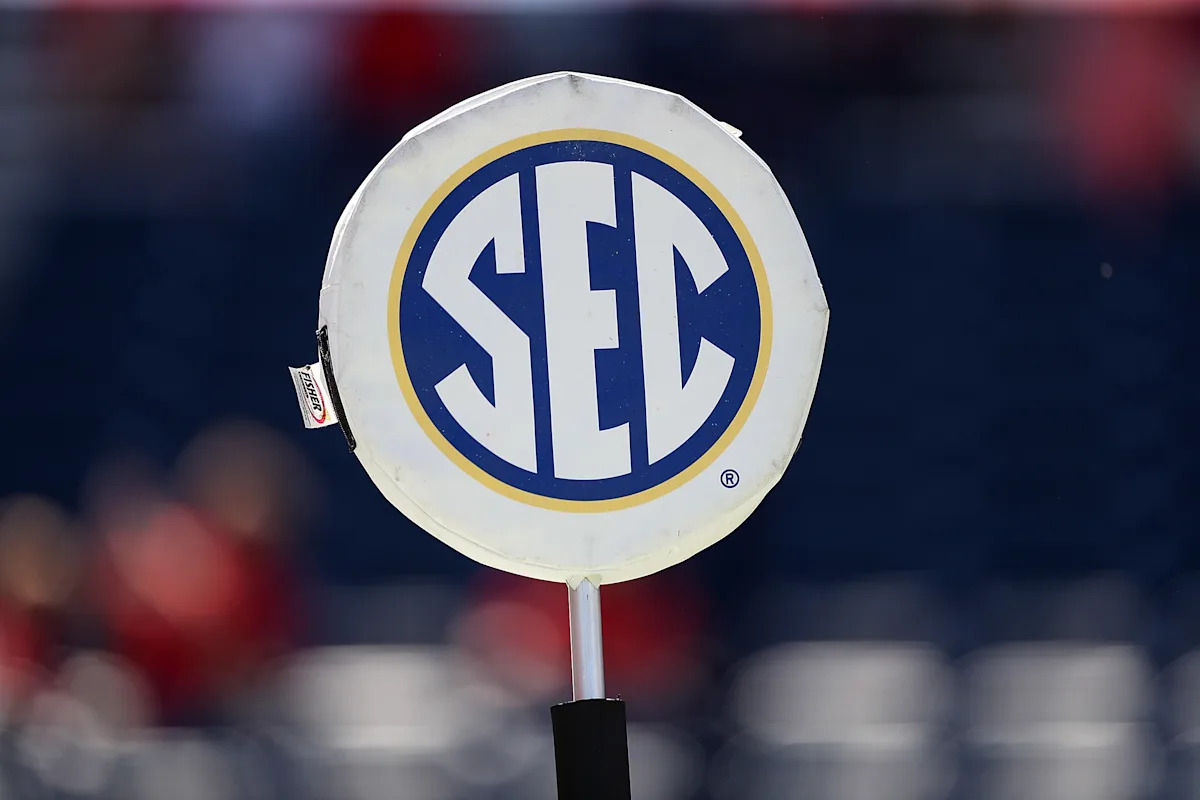SEC Commissioner Pushes Back on NCAA’s Betting Policy Change
In a memo sent last week, SEC Commissioner Greg Sankey voiced significant concerns over the NCAA’s recent decision to allow college athletes to wager on professional sports. Describing the move as a “major step in the wrong direction,” Sankey outlined the SEC’s unified stance against the new policy, emphasizing the potential risks it poses to the integrity of college athletics.
SEC’s Unified Response
Following discussions during in-person meetings on October 13, SEC presidents and chancellors expressed a collective belief that the NCAA’s decision to lift the ban on professional sports betting should be reversed. In his two-page letter, which was obtained by Yahoo Sports, Sankey argued that the integrity of competition is paramount and warned that allowing athletes to bet could make them more vulnerable to exploitation. He articulated that what might start as casual betting could rapidly escalate into serious issues.
Call for Policy Refinement
The SEC contends that any prior concerns regarding the prohibition of athlete betting should not be addressed through a complete deregulation but rather through “careful refinement” of existing policies. Sankey called for a policy that clearly communicates an ongoing prohibition on gambling not just for athletes but also for athletics staff, stressing the importance of maintaining protective measures across all divisions of sport.
The NCAA’s Decision-Making Process
The NCAA’s governing committees across all three divisions reached a decision to lift the prohibition on professional sports betting. This measure was expected to be implemented shortly, with the Division I Board of Directors scheduled to discuss the matter in a meeting. This board primarily consists of university presidents, including SEC representation through Ole Miss Chancellor Glenn Boyce.
The ruling from the NCAA Division I Cabinet was met with widespread criticism among university administrators and coaches. Many voiced their disapproval, including Pitt coach Pat Narduzzi, who labeled the decision as “the stupidest decision I’ve ever seen.” Such sentiments echo the unease surrounding the balance between athlete rights and maintaining the integrity of college athletics.
The Shift Towards Change
The NCAA’s alteration of its gambling policy reflects broader changes within college sports, particularly regarding player movement and compensation. Changes, including the ability for athletes to earn from their Name, Image, and Likeness (NIL), have sparked an ongoing conversation around the adaptation of NCAA rules to align with the evolving landscape of collegiate sports.
The NCAA has justified its decision by highlighting its aim to align with the general standard among their student populations, where gambling on professional sports is already common. This policy shift also intends to encourage healthy conversations about gambling behavior among athletes and deepen support mechanisms for those grappling with gambling issues.
Concerns About Athlete Well-being
Despite the NCAA’s intentions, many worry about the implications for athlete welfare. The organization provides various resources for athletes struggling with gambling issues, including an e-learning module and ongoing research to understand gambling behaviors better. A study revealed that 67% of college students engage in sports betting, underscoring the potential influence on college athletes poised at the intersection of competition and personal conduct.
Implications for Individual Conferences
While the NCAA’s decision creates a framework for gambling on professional sports, individual conferences or schools retain the authority to impose stricter regulations. Sankey’s memo noted that while local policies may evolve, the NCAA’s existing stance has long served as a testament to maintaining integrity in collegiate sports. The expansion of the gambling industry raises concerns that the boundaries established to safeguard athletes are now compromised.
The Need for Vigilance
Recent incidents in professional sports, such as scandals within the NBA, illustrate that even highly regulated environments can face challenges related to betting integrity. Sankey’s letter emphasized that college athletes, often under greater pressure and with less support than their professional counterparts, are at an increased risk for exploitation and compromised conduct.
The NCAA has acknowledged a growing caseload involving sports betting violations, with most incidences directly challenging the integrity of college sports. A layered strategy that includes integrity monitoring services to watch over thousands of college games each year aims to preemptively address such issues.
A Historical Perspective
The NCAA has faced scrutiny in recent years as cases of betting violations have emerged, including instances where former men’s basketball athletes engaged in betting on their own games. This trend raises important questions about accountability and the need for stringent enforcement measures within college athletics to uphold ethical standards.
In summary, the debate surrounding the NCAA’s new gambling policy highlights the complexities at the intersection of athlete rights, integrity, and the evolving landscape of college sports. As the NCAA prepares for further discussions on the topic, stakeholders across the college athletics landscape remain vigilant, balancing progress with the essential goal of preserving the integrity of competition.

